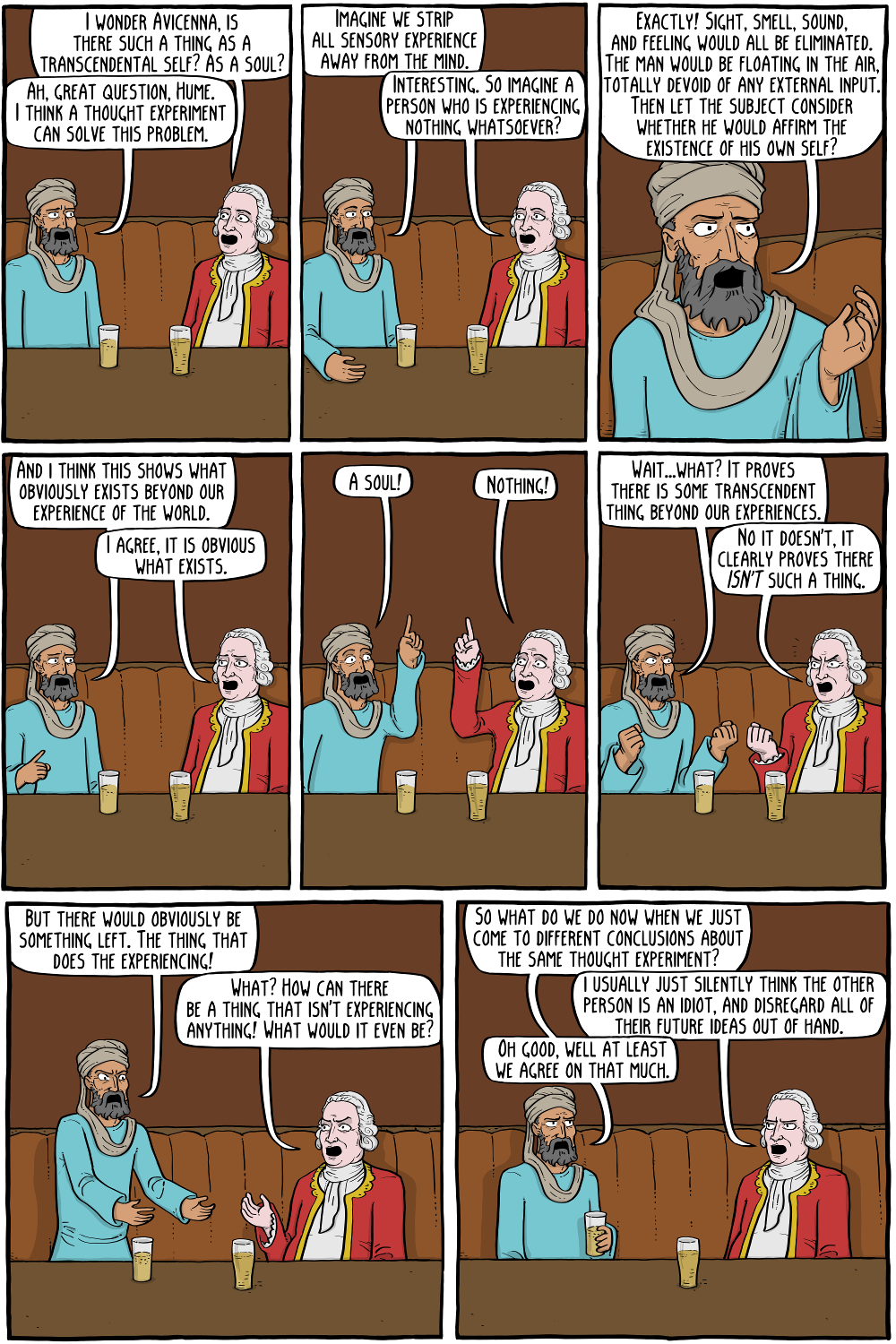The Name of Love
Far Right Nutjob
An addendum to my post yesterday, an argument for hylemorphic dualism.
Even if this isn't an argument Aristotle would've made, even if this is something original to St. Thomas due to his Platonic views, there's nothing about this that necessarily undermines Aristotelian ontology. In order to prove that, you'd have to show that the conclusion is manifestly self-contradictory, which I don't think you can do.
- Hylemorphism is true.
- So the human soul is the form of the body. (From 1)
- But the human soul engages in immaterial operations.
- Agere sequitur esse: whatever operates I-ly must be (exist) I-ly.
- So the human soul, qua executing immaterial operations, exists immaterially. (From 3 and 4)
- So the form of the body, qua executing immaterial operations, exists immaterially. (From 2 and 5)
Even if this isn't an argument Aristotle would've made, even if this is something original to St. Thomas due to his Platonic views, there's nothing about this that necessarily undermines Aristotelian ontology. In order to prove that, you'd have to show that the conclusion is manifestly self-contradictory, which I don't think you can do.

